What is Database Synchronization?
This article illustrated different database synchronization types.
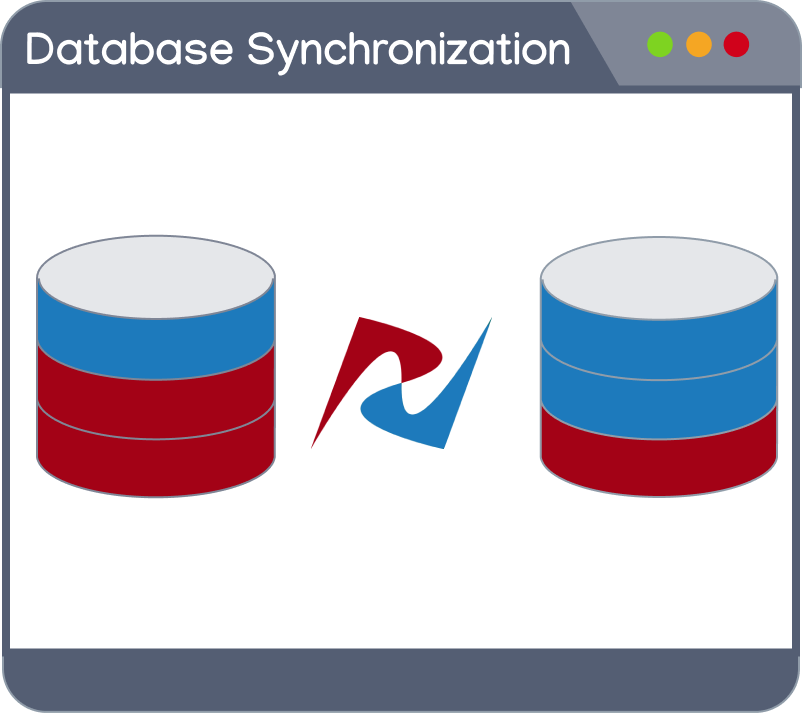
Database synchronization ensures data consistency between two or more databases. In the simplest case, changes to the source database are applied to the target database.
NOTE: Each database table should have a "Primary Key" that uniquely identifies one and only one row. This greatly simplifies data maintenance and speeds up the synchronization process.
In this article, you can find information on the different types of synchronization:
- Insert
- Update
- Drop
- Mixed
Insert Database Synchronization
New records from the source table will be copied to the target table if there are no matching records with identical primary key values. As a result of the database synchronization process, the missing rows will be inserted into the target tables.
The following diagram illustrates the "Insert Sync"
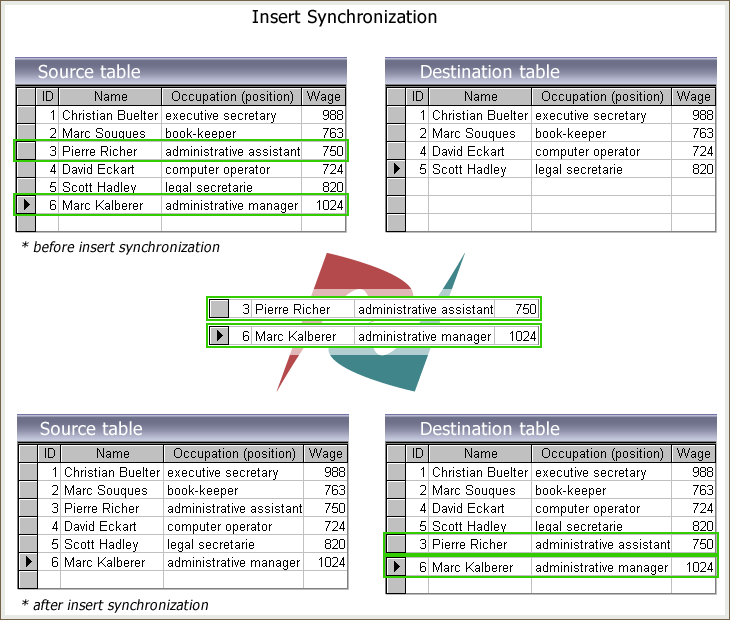
Update Database Sync.
When making changes to the source database, the corresponding changes must be made to the target database. The synchronizer keeps track of the values of the table rows. The changed records will then be replaced in the target tables to confirm the identity between the two tables. As a result of update synchronization, all of your data in the source and destination is constantly updated.
The figure below shows the update synchronization.
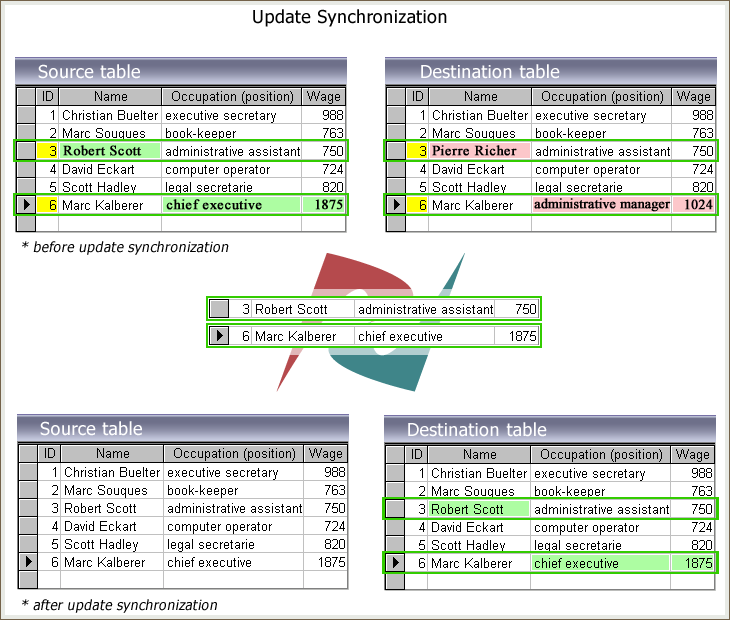
Drop Database Sync.
If some records have been removed from the source, the corresponding records must be removed from the destination. These obsolete records will be dropped from the target if they do not exist at the source.
The Drop sync process is shown schematically below.
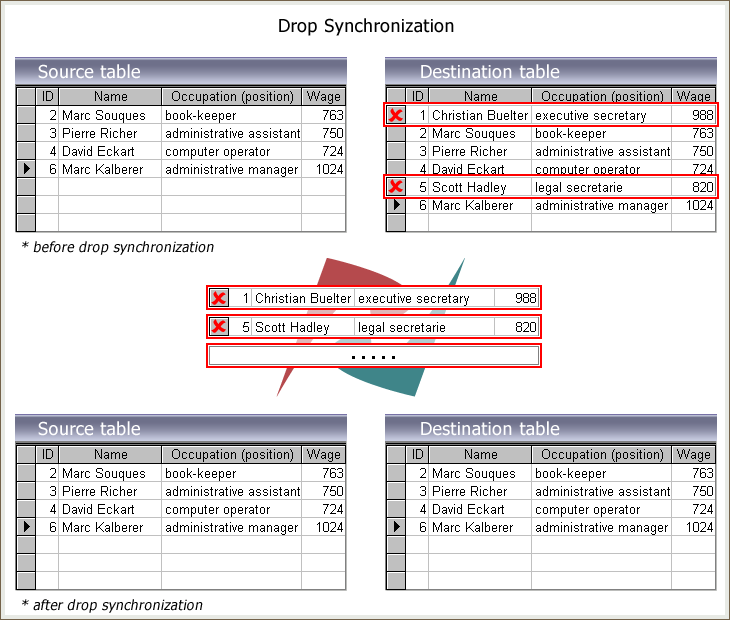
Mixed Database Synchronization
For example, you made changes to your original tables, added completely new records, and removed obsolete rows. To keep your databases up to date, you must add, delete, and update these relevant records in the target database.
Check all the "Insert Sync," "Update Sync," and "Drop Sync" options to get the identical source and target databases.
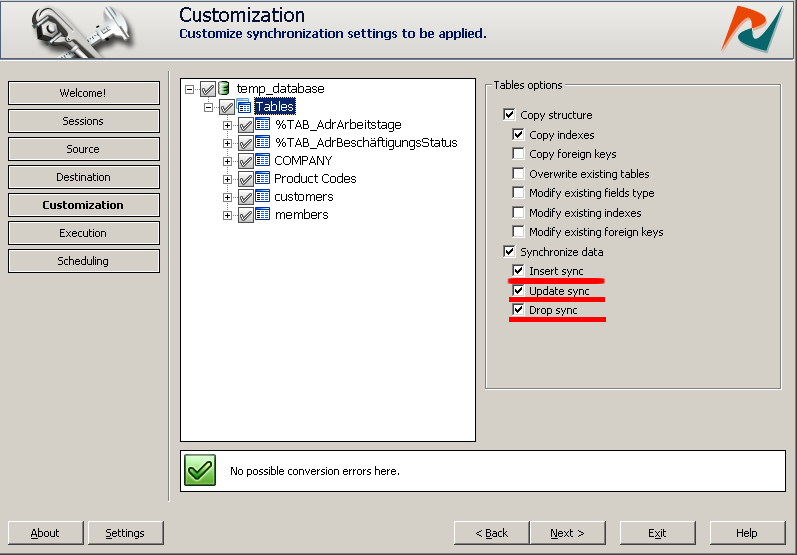
The figure below shows how the insert, update and delete synchronization options in DBSync Tools work together.
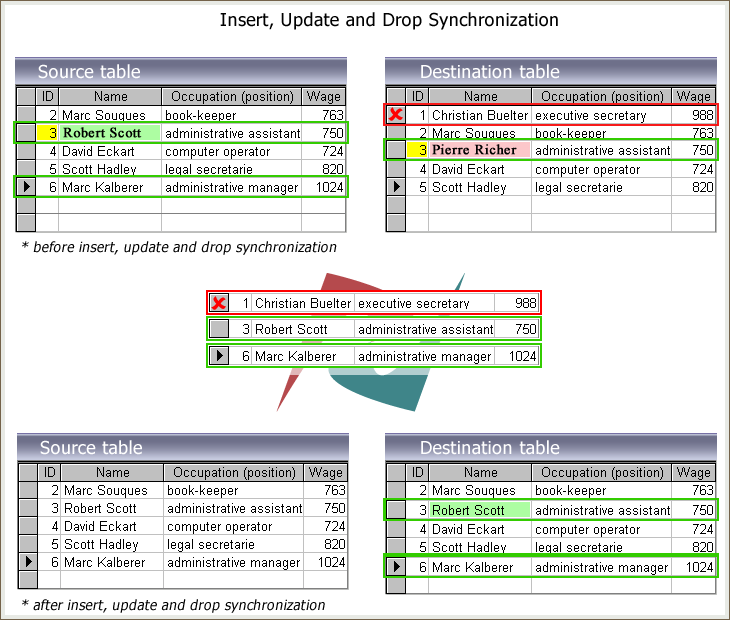
DBSync database synchronization tools can also perform bi-directional synchronization and keep data up-to-date between different databases.
Check out DBConvert studio - the most advanced database migration and synchronization software that converts data between the most popular DBMS.
Introducing DBConvert Streams.
DBConvert Streams is an innovative cross-platform solution that offers CDC replication and sync capabilities for databases. With our new cloud-based platform, you can easily capture and replicate changes in real-time.
The preview version of DBConvert Streams is available for free, allowing you to explore its features and benefits at no cost. Experience the power of seamless data replication and synchronization with DBConvert Streams.
